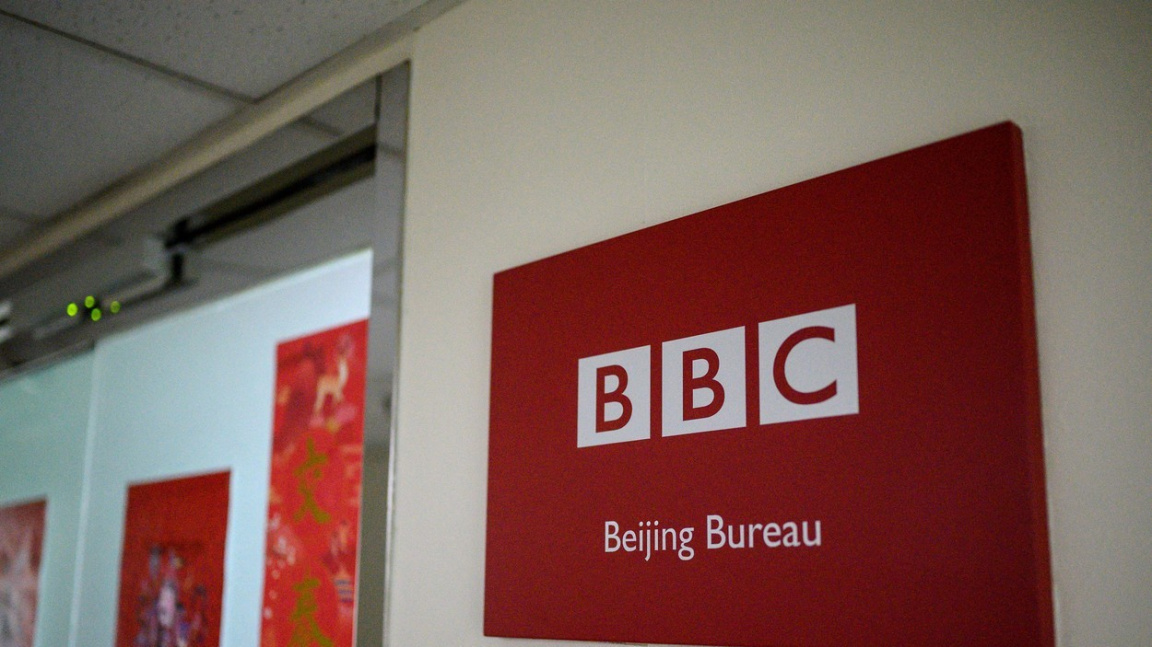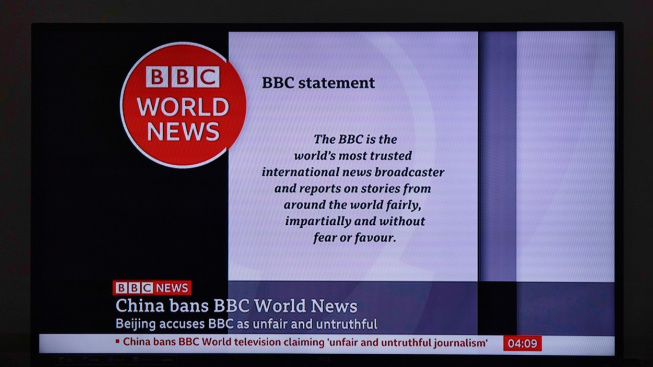China bans BBC World News from broadcasting in its territory; Beijing has criticized the BBC’s report on the corona virus and the persecution of Uyghur ethnic minorities. The BBC said it was disappointed with the decision.
China’s National Radio and Television Administration has concluded that BBC World News reports on China have “seriously violated” the broadcast guidelines, which stipulate that “news must be truthful and fair” and “not violate Chinese national interests.” The NRDA claims that the BBC World News ‘violates the principles of journalism’s authenticity and impartiality’ in its broadcast about China, criticizing the Chinese Foreign Ministry for spreading false news about covering up China’s response to the COD-19 epidemic. BBC World News is said to be undermining China’s national interests and ethnic unity.
The BBC said: “We are disappointed that the Chinese authorities have chosen this practice. The BBC is the most trusted news outlet in the world and reports events around the world fairly, impartially and without fear or for anyone’s benefit.” British Foreign Secretary Dominic Robb called the move “an unacceptable restriction on media freedom.” He said China has some strict controls on the media and the Internet in the world, and that its latest move would “damage the country’s reputation in the eyes of the world.”
BBC World News is broadcast worldwide and in English. It is partially blocked in China, so it can only be seen in international hotels and in some areas by diplomats. This means that the majority of the Chinese population still does not have access to the BBC. China has been systematically blocking and controlling the foreign media for the past two years. Both the BBC website and mobile apps are already banned in the country.
The relationship between Britain and China is cold
It is unclear what the consequences of the BBC broadcast will be because it could not reach the Chinese people anyway. But the BBC ban extends to Hong Kong – where Beijing is increasingly suppressing it.
The BBC ban is another sign of the gradually deteriorating relationship between China and Britain, with China being one of the UK’s key trading partners. Relations between the two countries have begun to deteriorate in recent months due to events in Hong Kong. Beijing introduced a controversial defense law here after the pro-democracy movement began to spread. In January, Britain introduced a new visa that gives Hong Kong people the right to live in the UK and become British citizens. The country believes that China is undermining the rights and freedoms of Hong Kong.
In addition, British media regulator Ofcom has revoked the license of China Global Television Network (CGDN), the state broadcaster broadcasting in the United Kingdom. The decision comes after it became clear that Star China Media Limited was illegally holding the license of the Chinese news channel CGDN. According to Ofcom, during the broadcast, the channel’s owner, Star China Media Limited, did not have “editorial responsibility” for the channel’s publications and therefore did not comply with the legal requirement to regulate the licensed service.
After discovering that it would be under the control of the Chinese Communist Party, the regulators rejected the CGDN’s proposal to transfer the license to a new company. The move followed long tensions between British controllers and the Chinese station. Ofcom has previously ruled that CGDN repeatedly violated the standards of media impartiality with biased information about what is happening in Hong Kong.
Uyghur genocide
In addition, in February the BBC published an article featuring interviews with Uyghur women. They said they were formally raped, sexually abused and tortured in Chinese re-education camps in Xinjiang. The Chinese Foreign Ministry has accused the BBC of “misinformation”. The United States has said China has committed genocide against Uyghurs and other mainly Muslim groups, with more than a million Uyghurs and other minorities detained in Chinese camps.
What is happening to the Uyghurs in Xinjiang is genocide, and the BBC’s reporting (about Uyghurs) shows that the Chinese government has no intention of preventing its horrific human rights abuses.
China denies persecution of Uyghurs. Last year, Liu Xiaoping, China’s ambassador to Britain, told the BBC that reports of concentration camps were “false” and that Uyghurs were being treated like any other ethnic group in China. According to Beijing, the camps are vocational training centers that help disrupt citizens. He also accused the BBC of “spreading lies about Chinese politics.” According to Chinese officials, allegations of sexual violence and torture in Xinjiang “have no basis”, so the BBC accuses it of spreading false information and using actors instead of real Uyghurs.
China criticizes BBC report on corona virus and persecution of Uyghur ethnic minorities | Source:
Profimedia.cz
Club of Foreign Reporters in China (Chinese Foreign Correspondents Club) He feared that the language of Chinese officials should be a warning to other foreign media, which could face “sanctions if they do not follow the Chinese party’s lead on Xinjiang and other ethnic minorities.” It opposes attempts to define a good press that supports the policies, ideological positions or interests of any government.
China’s response to the BBC has been condemned across the UK’s political spectrum, The Guardian reports. Liberal Democrat spokeswoman Layla Moran said the role of the media, such as the BBC, was important in ensuring quality information on world affairs: ‘In Uyghur) the Chinese government does not want to prevent its horrific human rights abuses. “


